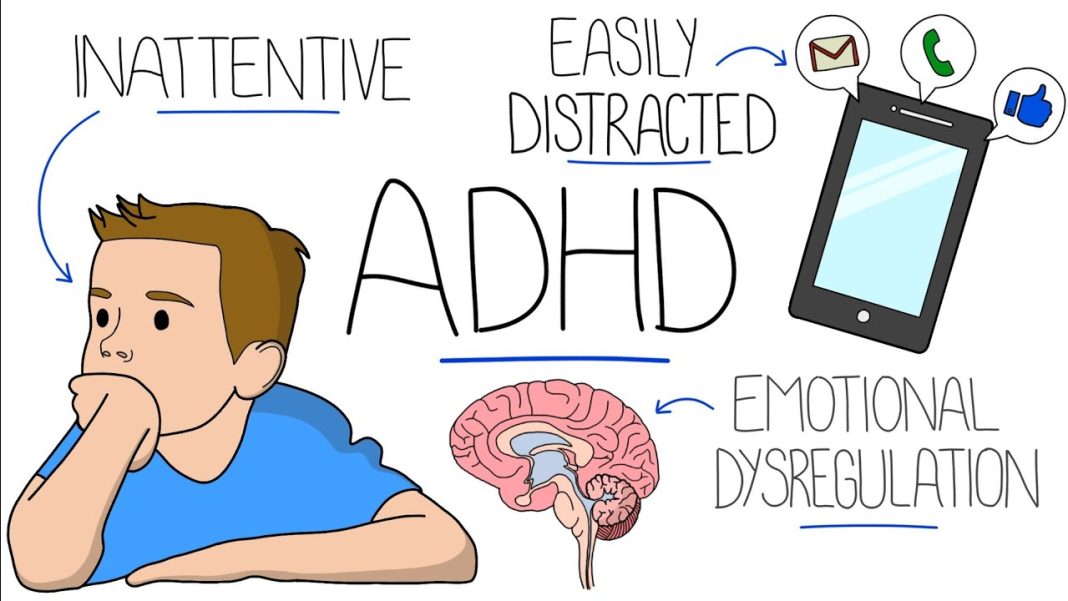Attention Deficit Hyperactivity Disorder (ADHD) is a mental health condition affecting millions of adults worldwide. For those with severe ADHD, the symptoms can be debilitating and require treatment with medication such as Adderall. But what does severe ADHD look like in adults? We’ll explore the common signs and symptoms of severe ADHD, as well as the different types of treatments available.
Difficulty Focusing
One of the most common signs of severe ADHD in adults is difficulty focusing. Adults with severe ADHD often find it difficult to concentrate on tasks, even when they’re enjoyable or essential. They may feel overwhelmed or easily distracted by minor details and lose track of their thoughts or goals. It can be challenging for people with severe ADHD to focus on a single task for more than a few minutes, making it difficult to complete projects or finish assignments on time.
Additionally, these adults may have difficulty staying on topic during conversations and may be prone to overthinking and ruminating on topics. It’s important to note that difficulty focusing does not necessarily mean laziness or lack of effort—it’s a symptom of a larger problem that needs to be addressed.
Disorganization
ADHD can make it difficult for adults to stay organized and on top of their daily tasks. Disorganization affects all aspects of life, from personal to professional and everything in between. This could mean forgetting appointments, important deadlines, or other commitments. It can also lead to misplacing items, difficulty managing one’s time, and difficulty staying focused on tasks. Disorganization caused by ADHD can be frustrating and make it hard to keep up with day-to-day responsibilities. It can also lead to additional stress and anxiety, which can worsen the symptoms of ADHD.
Fortunately, some strategies can help adults with ADHD better manage disorganization. Planning ahead, breaking tasks into manageable chunks, using reminders and alarms, and engaging in mindfulness practices can help with organization and keeping on track with daily tasks. Additionally, enlisting the support of friends and family to remind you of important tasks can be helpful.
Impulsivity
Regarding adults with severe ADHD, impulsivity can be a significant issue. Impulsivity refers to the tendency to act without thinking or considering the consequences of one’s actions. People with severe ADHD may find it difficult to think before they act, leading to an increase in impulsive behavior. This can include making decisions quickly without considering the long-term impact, talking out of turn-in conversations, interrupting others, and engaging in risky behaviors.
It can also manifest in an inability to wait their turn or delay gratification, which can cause social and professional problems. Some adults with severe ADHD may be prone to substance abuse as they seek quick relief from their symptoms.
Related Info: Buy Cheap Adderall Online
Mood Swings
When experiencing a mood swing, focusing on tasks and conversations can be challenging. To cope with the emotional distress caused by these sudden shifts in mood, some individuals may turn to alcohol or drugs as a means of escape. The overuse of substances can further complicate the symptoms of ADHD and worsen the overall impact it has on the individual’s life.
To manage mood swings associated with severe ADHD, it is essential to develop healthy coping skills and engage in activities that promote emotional stability. Talking to a therapist or counselor can help provide strategies for managing and understanding emotions. Exercise, yoga, and mindfulness activities can also help reduce feelings of stress and anxiety that can trigger or worsen mood swings.
Problems with Time Management
Time management is a significant issue for those with severe ADHD, especially when it comes to multitasking. People with severe ADHD have trouble completing tasks in an orderly, timely fashion. This can lead to procrastination and missed deadlines. It’s also common for individuals with severe ADHD to become easily overwhelmed by numerous tasks or activities.
It’s not uncommon to see people with severe ADHD struggling to prioritize tasks or organize their time efficiently. This can result in missed appointments, disorganization of work, and an inability to stay on track with goals. As a result, it can be difficult for people with severe ADHD to succeed in a professional environment or even at home.
Relationship Difficulties
Adults with severe ADHD often struggle to maintain healthy relationships, both romantic and platonic. Difficulty paying attention, communicating, following through on promises, and maintaining boundaries can all lead to tension and strain in relationships. Adults with severe ADHD may also have trouble expressing emotions, leading to misunderstandings and misinterpretations. With the inability to manage their time well, those with severe ADHD can often be forgetful or fail to keep up with their commitments, which can lead to frustrations from their partners or friends. Additionally, impulsivity may cause individuals to blurt out things without thinking, making it difficult to nurture a meaningful connection.
If left untreated, these relationship difficulties can result in difficulty forming new friendships and lacking intimacy in existing relationships. Adults with severe ADHD need to take proactive steps in managing their symptoms to ensure healthy relationships. This may include practicing self-care, reaching out for support when needed, and seeking appropriate professional help.










